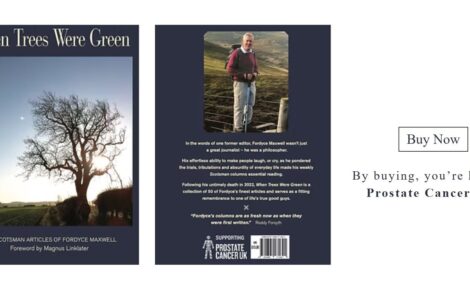



Will Scotland's Independence Vote Impact Agriculture?
ANALYSIS - Scotland’s First Minister Alex Salmond addressed international agricultural journalists at a conference in Scotland on Sunday evening saying, “There is a debate going on as part of this great national discussion about Scotland’s place within the European Union,” writes Sarah Mikesell, 5m senior editor.Scots will vote on September 18 on the future of their country – either to end their 307-year union with England and Wales as Great Britain and create an independent nation of some 5.3 million people or to remain part of the United Kingdom.
First Minister Salmond, who is leading the pro-independence campaign, said: “In my view, you can explain this position in four figures:
- 1 per cent – Scottish population relative to the EU – 5 million people in the EU
- 20 per cent – Scottish share of fish stocks relative to the EU
- 25 per cent – Scottish share of renewable energy reserves of the EU
- 60 per cent – Scottish oil reserves of the EU
“You don’t have to look at legal opinion or commission opinion or anyone’s opinion, you only need to look at these figures.”
Among the extraordinary natural assets and advantages of Scotland, the food and farming industry in Scotland is valued at £12 billion, he said.
“In the last five years, we have increased exports - and I mean the farming industry community and the food sector - have increased exports by 50 per cent,” First Minister Salmond said.
“That has been done through a range of initiatives and has been based on the quality of produce we raise in Scotland.”
Earlier in the conference, Nigel Miller, President of NFU Scotland, responded to a question regarding how agriculture would be affected by adoption of the referendum.



